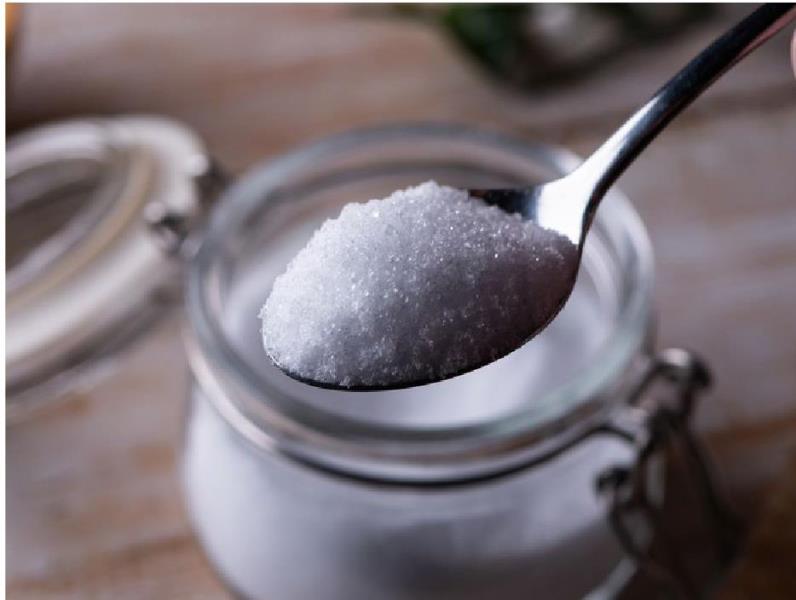
Nature Medicine
March 2023; Vil. 29; No. 3; pp. 710-718
Marco Witkowski, Ina Nemet, Hassan Alamri, 14 more, and Stanley L. Hazen
Sugar alcohols are hybrids of sugar molecules and alcohol molecules. Sugar alcohols are low-calorie sweeteners (not zero-calorie). They are commonly used to sweeten low-carb foods, especially “keto” products.
Erythritol is a sugar alcohol that has 70% of the sweetness of sugar but only 5% of the calories.
These authors examined the use of the sugar alcohol erythritol and atherothrombotic disease risk. They used 2 cohorts of 2,149 subjects (US) and 833 subjects (European).
Major Adverse Cardiovascular Events (MACE)
“Artificial sweeteners have been widely introduced into the food chain over the past few decades to reduce sugar and calorie intake.”
“Artificial sweeteners are increasingly common ingredients in soft drinks, processed foods, and personal care products.”
“Patients with metabolic diseases, including type 2 diabetes and obesity, are frequently advised to use artificial sweeteners in place of sugar.”
“There is growing epidemiological evidence linking the consumption of artificial sweeteners to adverse cardiometabolic phenotypes, such as weight gain, insulin resistance, type 2 diabetes, and cardiovascular disease (CVD), including atherothrombotic complications and cardiovascular mortality.”
Erythritol is naturally present in low amounts in fruits and vegetables; but when incorporated into processed foods, it is typically added at levels 1,000-fold higher.
Erythritol is one of the most widely used artificial sweeteners with rapidly increasing prevalence in processed and “keto”-related foods.
Erythritol is among the top MACE-associated candidate molecules, increasing the cardiovascular risk by about 300%.
Erythritol “has increasingly been added to processed foods, with rapid approval for its use in many countries around the world (and applications are still increasing).”
“The FDA does not require disclosure of erythritol content in food products, making its levels in foods as an additive hard to track.”
• Plasma levels of erythritol “remained 1,000-fold higher for hours after ingestion and remained substantially elevated for over 2 days in all participants examined."
• Higher levels of erythritol were found in those who experienced an incident of MACE over the ensuing 3 years of follow-up.
• Results indicate that erythritol is associated with CVD risks.
• Compared to participants in the lowest quartile of erythritol levels, those in the highest quartile had substantially increased MACE incident events by 164% in the US cohort and 348% in the European cohort.
• Erythritol was independently associated with MACE in all cohorts.
• These authors “confirmed that circulating levels of erythritol were associated with incident adverse cardiovascular event risk independent of traditional CVD risk factors.”
• Erythritol dose-dependently enhanced platelet aggregation and increased thrombosis.
“Safety studies on artificial sweeteners are conducted over relatively short durations and have been criticized both for inadequately capturing long-term exposure and for differing from real-life practice.”
“The very subjects for whom artificial sweeteners are marketed (patients with diabetes, obesity, history of CVD and impaired kidney function) are those typically at higher risk for future CVD events.”
“Our findings reveal that erythritol is both associated with incident
MACE risk and fosters enhanced thrombosis.”
Dan Murphy has provided weekly reviews of pertinent articles for the chiropractic community for 25 years. Topics range from nutrition, neurology, orthopedics, biomechanics, diet, exercise, immunology, whiplash injury, radiology, clinical anatomy, chiropractic care, and more. Here is what one subscriber said: “I am very grateful for keeping me in the loop of knowledge. These article reviews are priceless.” Interested chiropractors can sign up for this service on his website: www.DanMurphyDC.com.
 View Full Issue
View Full Issue






